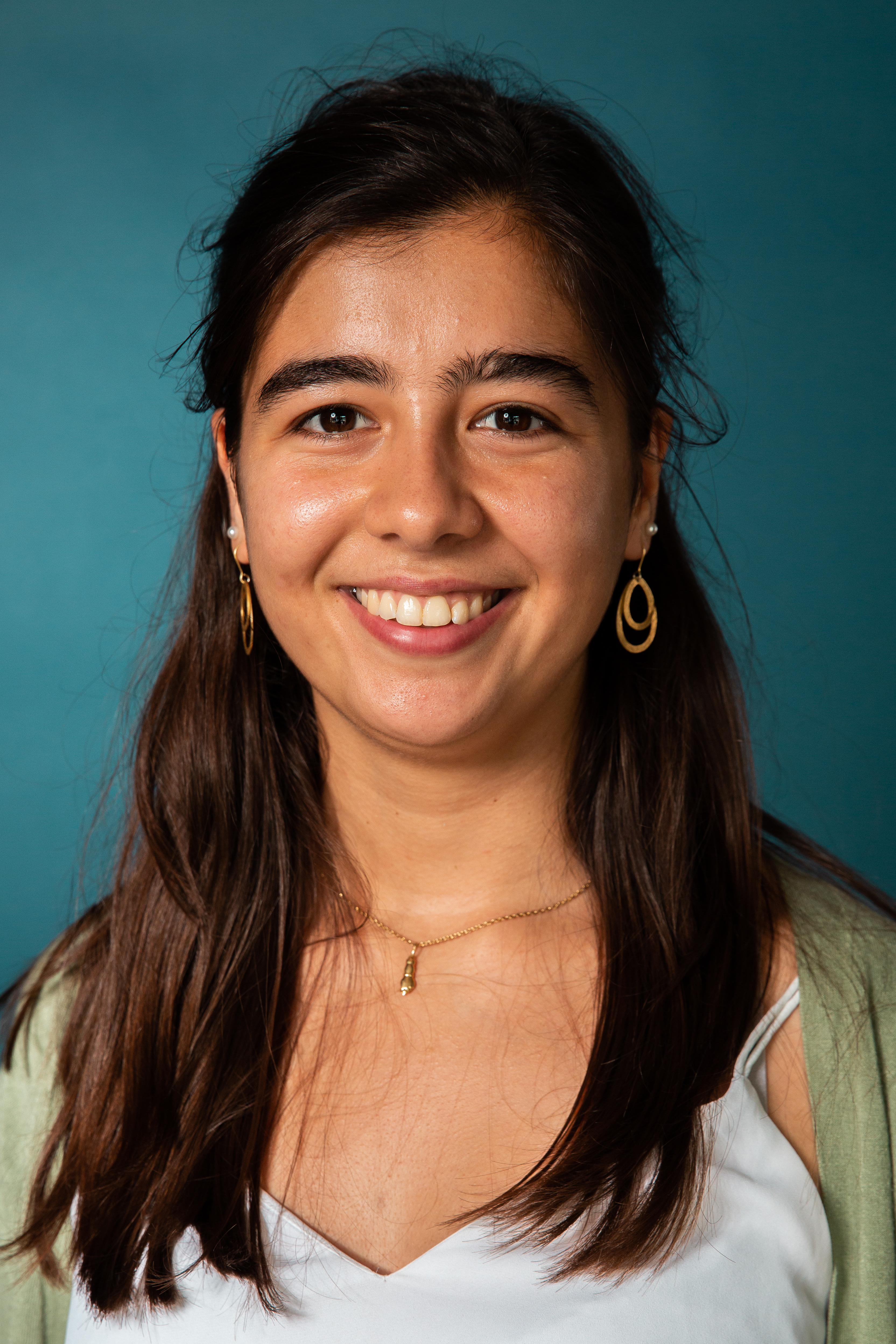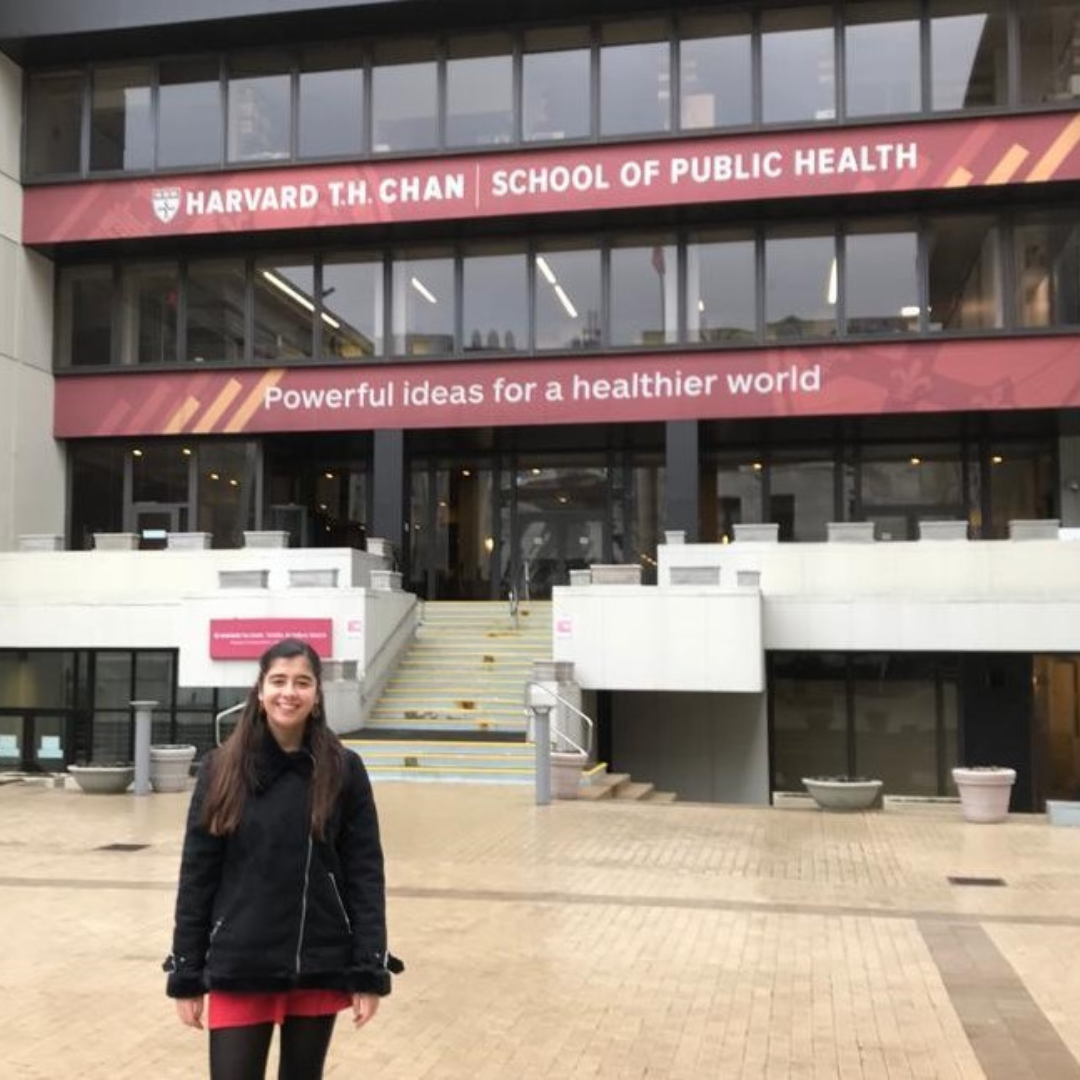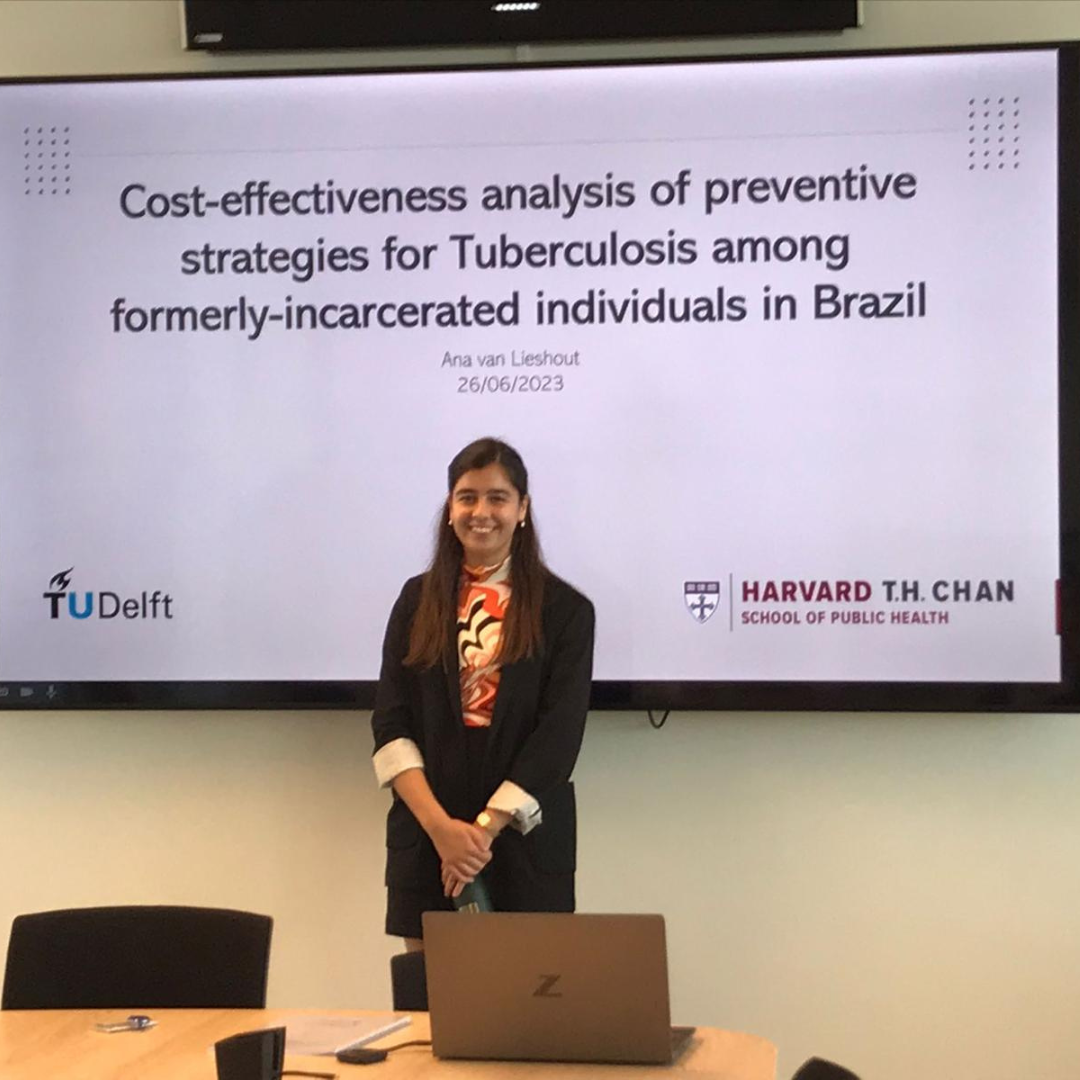EEMCS bachelor student publishes paper in leading medical journal
Ana van Lieshout Titan - prospective master's student in applied mathematics at the Faculty of EEMCS wrote her bachelor thesis during an internship at the Harvard T.H. Chan School of Public Health. And her thesis has now resulted in a publication in the leading medical journal The Lancet Global Health. Ana developed mathematical models for the preventative treatment of tuberculosis among ex-prisoners in Brazil. It’s a tremendously special achievement that Ana has reached this milestone so early in her (scientific) career!
Bachelors internship at Harvard
“During my Bachelor of Applied Mathematics, I got an internship at Harvard, and specifically Harvard's medical branch, namely the Harvard T.H. Chan School of Public Health,” Ana explains. Harvard collaborates with the Brazilian Ministry of Health on health research, which includes tuberculosis research. “I am half-Brazilian myself, so it seemed interesting and fun to do research in that area,’ Ana explains. ‘And I can also read Portuguese, so that's very useful.”
Ana was really happy with her supervisor at Harvard, Nicolas A. Menzies. “In the beginning it was very difficult, because I didn't yet know exactly what I was going to do. I was quite young - I'm still young now, of course - but even more so then. I was given freedom by my supervisor at Harvard to set up the project myself, but there was also a lot of trust that I would be able to complete it.” Ana was also very happy with the guidance from TU Delft. “Professor Kees Vuik was enthusiastic about this project, and he was very helpful. I didn't feel like I was caught between two universities, but was supported by both. And I was in charge throughout; it really was my project. That was really very special!”
Preventing tuberculosis
In 2021, an estimated 10.6 million people worldwide had tuberculosis. In the same year, 1.6 million people died of the disease, making it the number 13 cause of death worldwide. Tuberculosis is a disease with a very long incubation period. After you get infected, it can take years before you develop the disease. And most people who have the infection never develop the disease. But when you do, it is a very intense disease, with a lot of impact. Preventive drugs have been developed, which keep people who are already infected from developing symptoms and spreading the disease. But these are long regimens, with many expensive drugs.
Ana began her internship with a literature review of research on groups of people disproportionally affected by tuberculosis. “If I applied a strategy to such a group, I would see the greatest effect,” Ana explains. In her research, she saw that due to overcrowding, lack of hygiene and poor ventilation, prisons act as amplifiers for tuberculosis transmission. Even after a person is released from prison, the risk remains high. It takes seven years after release for the risk of infection to return to that of the general population.
“That's why I started focusing my research on formerly incarcerated individuals. It was really full-on data research,” Ana explains. “I did a lot of computer work and coding. I looked at the population of ex-prisoners in Brazil amongst whom tuberculosis is common. I studied the effect different treatments have on this target group. How many life years are gained when people receive one treatment over the other? And how much does it cost for the government to provide that treatment?” The findings of Ana's study show that preventive treatment is highly cost-effective for this population, regardless of the chosen treatment. When comparing treatment options, shorter treatment was found to be more effective and cheaper.
Accepted
“From the beginning, my supervisor at Harvard said: we are working towards a publication,” Ana reflects. “When we actually started the process to publish, we went for the best journal, thinking that we were aiming a bit too high, and that we would try other journals until it was accepted. My supervisor had also prepared me: It's probably going to get rejected and don't be sad when that happens. But then it was actually published, and that was truly unexpected and really great!”
In the future, Ana would like to focus on the application of mathematics. “I like how mathematics can be used in real life. For now, I will focus on my master's degree first. And I do see myself in a research position in the future. I liked playing a role in research that helps others. I think that would be very nice for the future too!”



